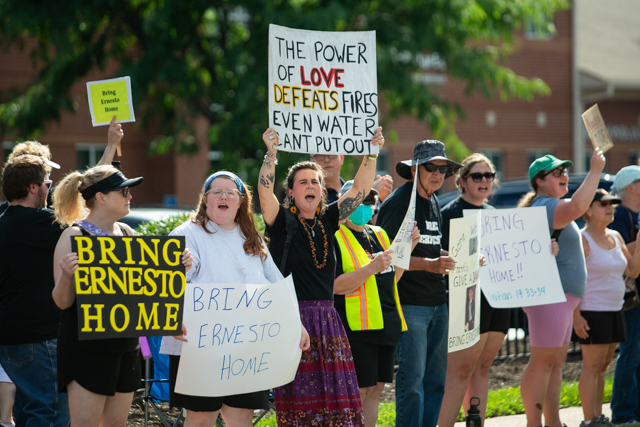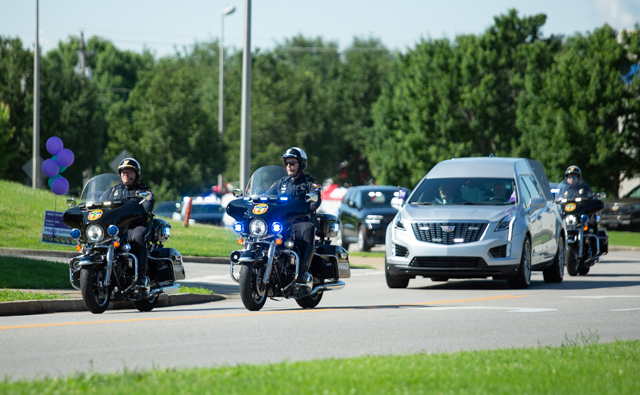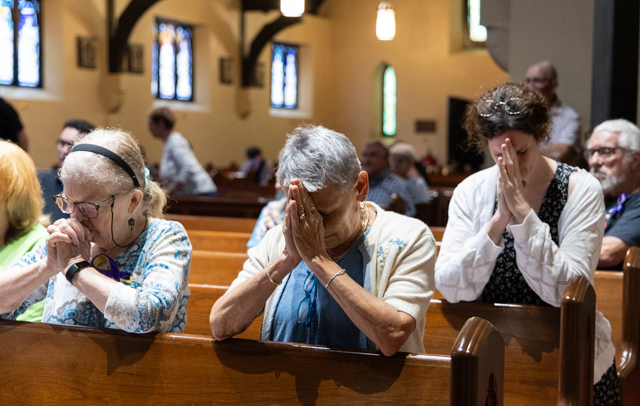Fourth conviction obtained, questions remain in Logan slaying case
Published 6:00 pm Saturday, June 22, 2019
RUSSELLVILLE – A fourth person involved in a deadly 2016 home invasion has pleaded guilty, but the fate of the alleged gunman, who is the only suspect to maintain a not guilty plea, may hinge on a judge’s forthcoming decision on whether to allow ballistics evidence at trial.
Demetrius Roberson faces a sentence of life without parole if he is convicted on charges of murder, attempted murder, first-degree robbery and nine counts of first-degree wanton endangerment.
Roberson, 25, is accused of firing the shot that killed 21-year-old Lexus Bell on Aug. 21, 2016, at her Russellville apartment.
Roberson is one of six people to have been charged in connection with Bell’s death, which court records indicate was the outcome of a robbery that targeted someone else at the apartment.
Criminal charges were dismissed against one person who provided an alibi for his whereabouts on the night of the incident, but four people have gone on to plead guilty to various lesser offenses.
Deon Young, 27, of Indiana, was the most recent co-defendant to resolve his case, pleading guilty Monday to a count of second-degree robbery.
Young was charged originally with murder, first-degree robbery and 10 counts of first-degree wanton endangerment, but a plea agreement reduced the robbery charge to second-degree robbery and dismissed the other counts.
Logan County Commonwealth’s Attorney Neil Kerr earlier this month filed notice of intent to seek life without parole for Young, but a plea agreement recommends a five-year sentence.
Young was reportedly contacted by co-defendant Tayveon Bibb about the robbery beforehand and admitted to being present at Bell’s apartment as the robbery took place.
Roberson is set to face a jury trial July 8 in Logan Circuit Court, with the trial anticipated to last about two weeks.
Attorneys involved in the case are awaiting a ruling from Logan Circuit Judge Tyler Gill on a motion filed by Roberson’s defense team to exclude all evidence related to the identification of firearms.
Kerr wants to introduce results of ballistics analysis performed by Kentucky State Police that concludes that 10 spent shell casings found at the crime scene were fired from a handgun that prosecutors will argue belonged to Roberson.
Steven Hughes, a KSP forensic scientist specialist, testified at a hearing earlier this month that he arrived at his conclusions about the shell casings by test-firing the handgun and using a microscope to compare the marks from the spent round to marks that were left on the shell casings collected at the scene.
Hughes testified that some guns leave a unique individual pattern of markings on each shell casing or bullet fired, which can enable an analyst to conclude with near-certainty that a particular round of ammunition was fired from a particular gun.
Roberson’s attorney, Michael Bufkin of the Department of Public Advocacy, argues that the methodology analysts use in ballistics identification lacks any scientific basis, making the conclusions unreliable.
In the motion to exclude the ballistics evidence, Bufkin argues that automated production and computerized tooling of gun parts renders “the notion that no two guns are alike” as “at best implausible,” increasing the likelihood for error when analyzing the marks left on a shell casing.
John Nixon, a mechanical engineer and firearms instructor, testified last week at a hearing on behalf of the defense that there have been scientific tests performed to determine whether the KSP’s method of ballistics analysis is reliable.
Kerr has argued that Kentucky Court of Appeals decisions establish that ballistics testimony concerning bullets is admissible.
In a court order from June 11, though, Gill noted that “there is no published case specifically concerning (the admissibility of) ballistics testimony as concerns shell casings,” leaving open to determination whether the shell casings analysis in this case will be shown to jurors.
On Friday, Gill filed another order mandating Gill and Bufkin to submit by Wednesday briefs arguing their respective positions on the ballistics and a copy of the studies that their expert witnesses relied upon when they testified at last week’s evidentiary hearing.
Roberson is scheduled to return to court Thursday, and a July 3 deadline has been set for the case to be resolved before trial.
Kerr said he has begun plea negotiation discussions with Roberson’s legal team.
Bibb has pleaded guilty to first-degree facilitation to robbery and received a five-year sentence. He sat for a deposition last month in the murder case.
Reba Kirk has pleaded guilty to charges of conspiracy to commit murder and complicity to first-degree robbery and was sentenced to 20 years in prison, a term that could be reduced depending on the extent of her cooperation with authorities at Roberson’s trial.
Jordan Lunsfors pleaded guilty to a charge of tampering with physical evidence and was placed on pretrial diversion for five years.






